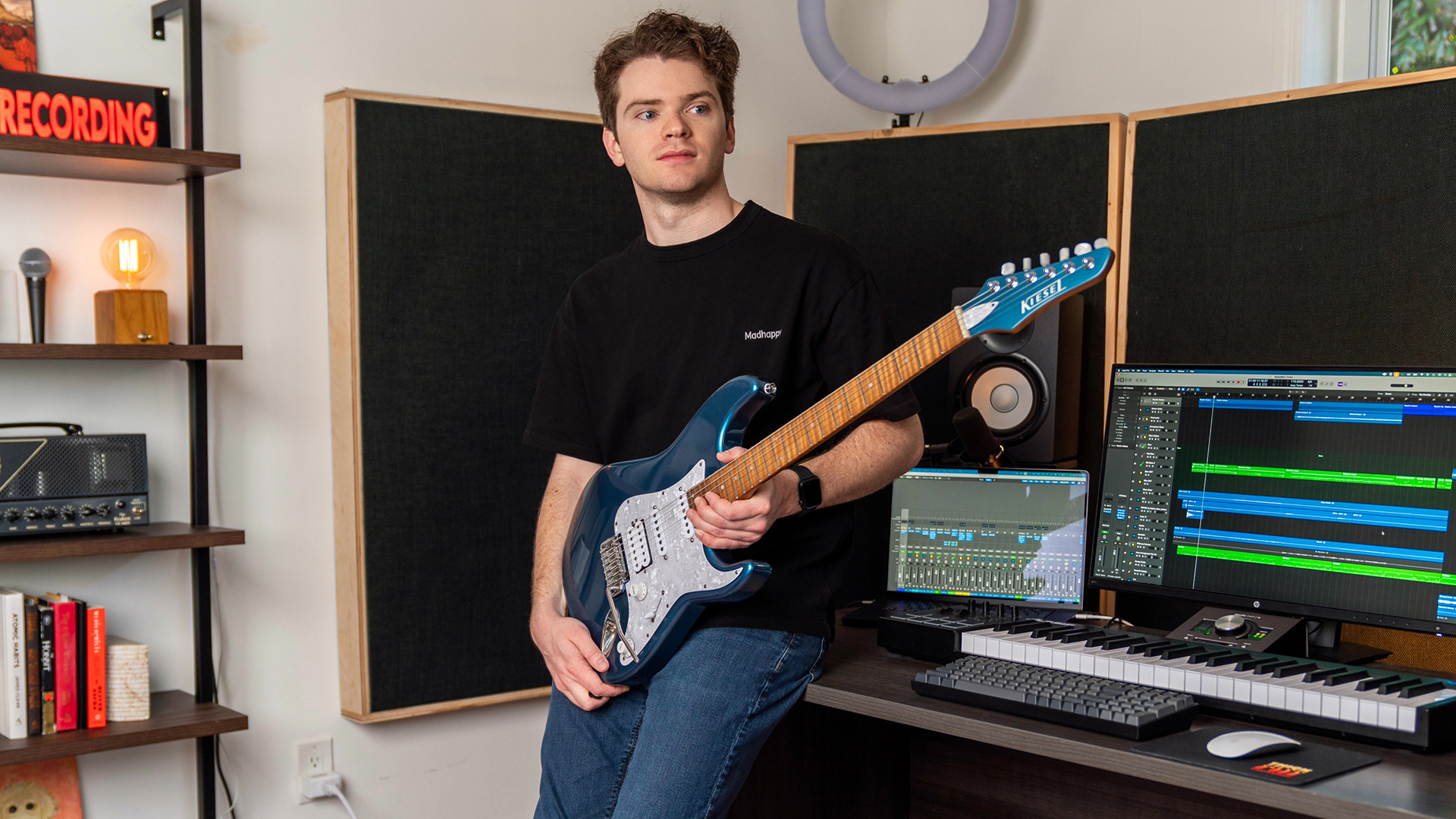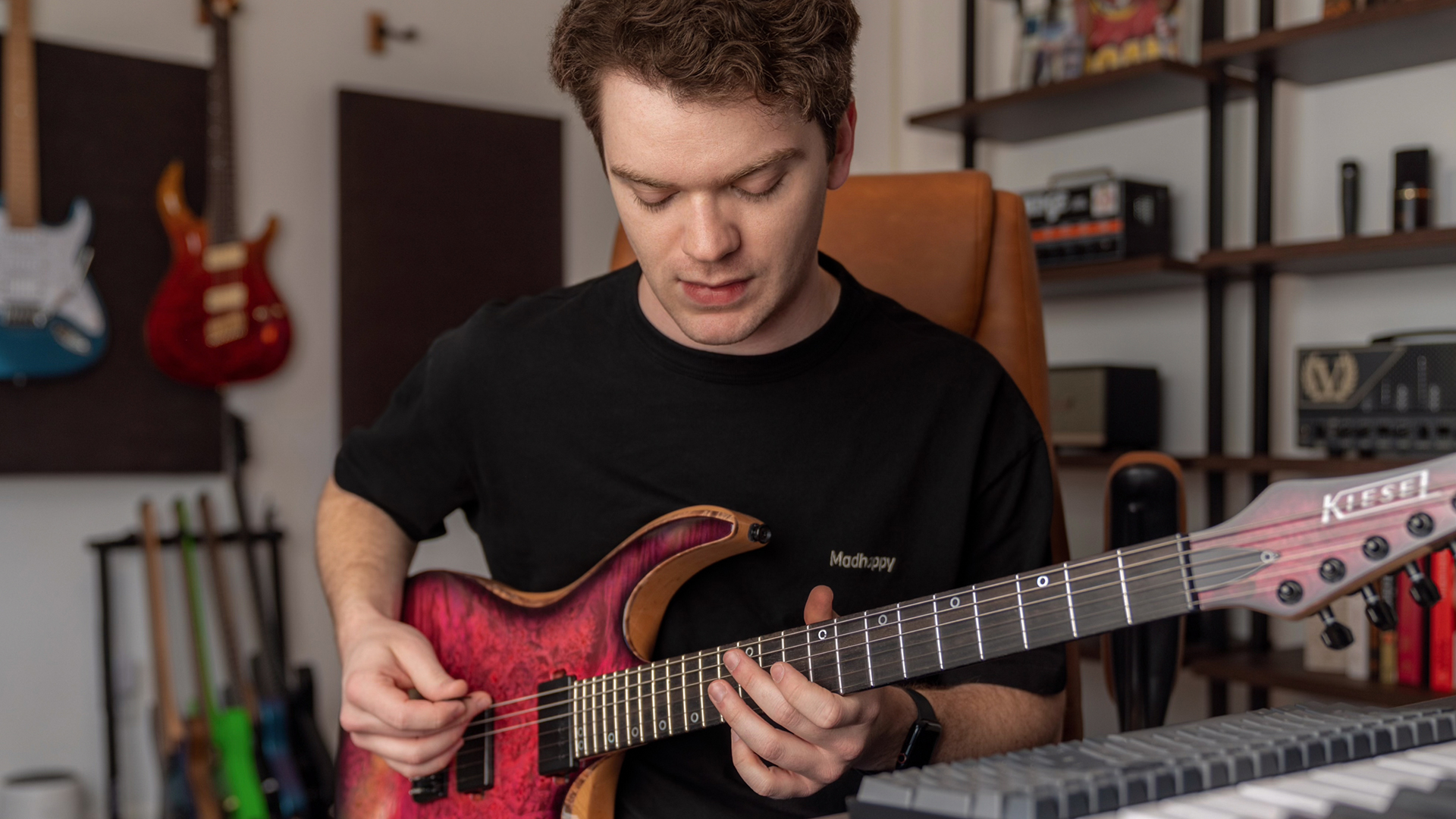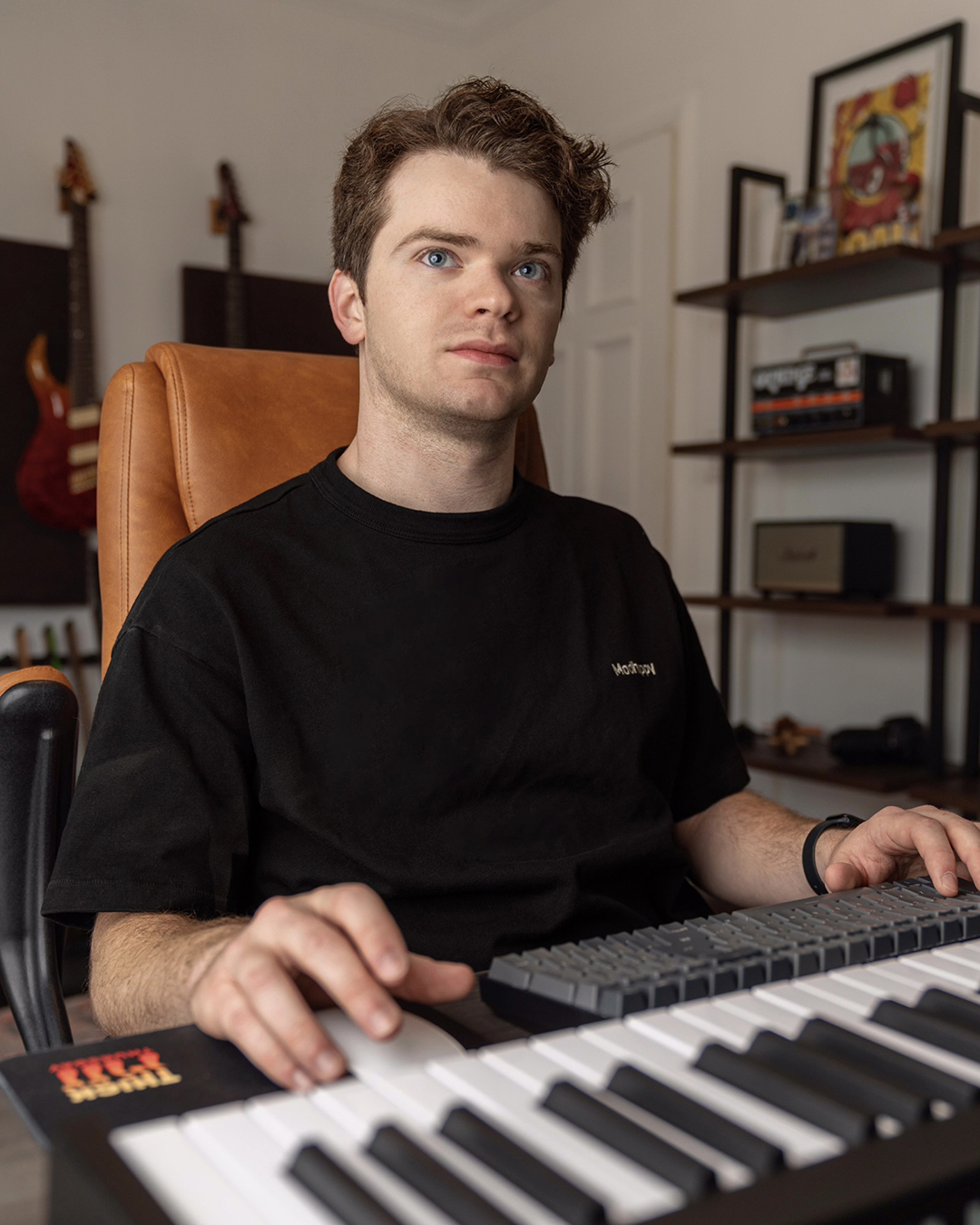
Translating an idea from one’s mind onto the guitar can be a challenging process. It’s one Nick Broomhall knows all too well. His Thick Riff Thursday videos – where he aims to churn out a cool guitar idea within an hour – see him navigating the challenge in real-time, baring all to his sizeable audience.
“It never really turns out exactly how I imagined it in my head,” Broomhall admits. “But usually, when I’m humming those ideas, I have a vision for it on the fretboard. I think the relationship between my imagination and the instrument is the most important part.”
Fostering that relationship centers on establishing a solid foundation.“Learning the songs and the riffs that you love will get you the vocabulary of all your favorite guitarists, and inevitably, you make that your own,” he says. “It bonds me to my instrument and it helps me form that idea into a recording.
“So when you think, ‘I want this riff to sound like Periphery and a little bit of Dream Theater,’ you have those vocabularies in your head already – you have those shapes and those styles baked into your brain.”
Beyond simply woking on riffs, Broomhall explores why he got excited by pieces of music in the first place.
“Say you hear a Spiritbox song that gives you a specific emotional response. Understanding what the instruments are doing to make you feel like that is important. Try to understand what the riff does that gives you that response. For getting ideas from your head out into the world, I think that’s huge.”

Recording full covers of songs taught me so much about dialing in a guitar tone and getting really good takes
“I remember going out to lunch with him one day, and he mentioned that he pretty much never put reverb on drums,” Broomhall says. “I started making my productions a little more focused, with a minimalist approach to things. It cleaned everything up and I was able to track better.”
He says expanding your production vocabulary is essential when trying to capture an idea that lives in your head. “When I started, I loved recording covers of songs from the ground up,” he explains. By trying to create soundalike versions – or even just a riff and a chorus – he could reverse -engineer their ingenuity.
“It taught me so much about dialing in a guitar tone, quad tracking guitars and getting really good takes. Less of your brain power is taken up trying to develop ideas into a DAW. You already have the idea! You're just defining it and putting it in your DAW.”
Broomhall stresses that it’s worth resisting the urge to add countless plugins to achieve your ambition – it’s akin to owning tons of pedals and not knowing how to use them. “For the first eight years of recording I was sticking to just the stock Logic plugins,” he says.
People don’t see the dozens of times that I hit record on my camera and nothing comes out
“It’s important to understand what all the tools that you have at your disposal do, and also what limitations a plugin has, before you move on to the next thing.
“It’s kind of like building that guitar vocabulary; you’ll get more mileage out your existing plugins. Then you suddenly understand, ‘I was looking for a plugin to do “X” when it turns out I already have a plugin that can do it, and I never explored it.’”
Seeing Broomhall seemingly pull a killer riff from thin air then guiding his viewers through his workflow is a wholly humanizing experience; especially in the ever-polished social media content age. According to a recent study, guitarists are now “caught in a paradox” between perfection and authenticity. How can they feel confident enough to present their authentic selves online, when all the content they see is pristine?
Broomhall empathizes – because he’s just as fallible as the rest of us. “People don’t see the dozens of times that I hit record on my camera and nothing comes out,” he admits. “Most of the time I go into a video where I have some nugget of an idea ready, so that I don’t feel like I’m wasting my own time.
“No one sees the countless hours of me trying to figure things out. I want to stress to everybody: that happens all the time. Those ideas don’t just happen. A lot of mistakes are made along the way.
It’s a fun process trying to take a voice note idea and turn it into a riff
“I posted a video recently that showed me recording a bar over and over again to get a good take. It ended up being 60-something takes. I remember seeing comments like, ‘Oh, thank God – I’m glad somebody else has this pain too!’”
While such mistakes and missteps litter Broomhall’s cutting-room floor, he’s spurred on by helping other guitarists bridge the gap between the riffs they hear in their heads and what comes out of their fingers. Whenever and wherever that may be.

“I think most musicians relate to the feeling of being at the grocery store and thinking, ‘Oh, this would be such a cool riff!’ whipping out their phone and looking like the weirdo in aisle six, humming a riff that doesn’t exist into their phone!
“It’s a fun process trying to take a voice note idea and turn it into a riff. And when I get comments from people saying, ‘This inspired me to go make my song,’ that’s awesome.”
- Follow Nick Broomhall on Instagram and YouTube for his Thick Riff Thursdays and work with him via Architect Tiger Studios.







